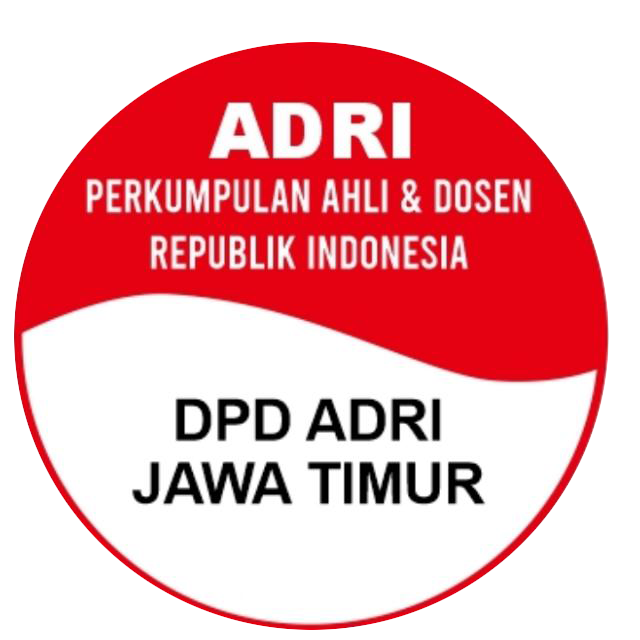State Responsibility In Providing Compensation To Victims of Gross Human Rights Violations
DOI:
https://doi.org/10.55173/yurisdiksi.v21i1.286Keywords:
Compensation, Gross Human Rights Violations, State ResponsibilityAbstract
The philosophical basis for providing compensation lies in the state's responsibility for its failure to prevent crimes. From a juridical perspective, Article 35 of Law Number 26 of 2000 on the Human Rights Court indicates that the provision of compensation is still dependent on a court decision. As such, even when gross human rights violations have occurred and victims are identified, if the accused is not proven guilty in court, they cannot be held accountable for providing compensation to the victims. This situation has the potential to create a vertical normative conflict with Article 28 of the 1945 Constitution, particularly regarding fundamental human rights that must be fulfilled by the state. This study aims to examine the principles and the role of the state in providing compensation to victims of gross human rights violations. It employs a normative legal research method with a conceptual and philosophical approach, and data collection is carried out through literature review and legal document analysis. The research findings show that the principle of state responsibility in providing compensation to victims of gross human rights violations must be grounded in the Universal Declaration of Human Rights (UDHR), the Declaration of Basic Principles of Justice for Victims of Crime and Abuse of Power, and the International Covenant on Civil and Political Rights (ICCPR).
References
A.Bazar Harapan, Nawangsih Sutardi. 2006. Hak Asasi Manusia Dan Hukumnya. Jakarta: CV. Yani’s.
Abidin, Supriyadi Widodo Eddyono & Zainal. 2016. Memastikan Pemenuhan Hak Atas Reparasi Korban Pelanggaran HAM Yang Berat. Jakarta: Institute for Criminal Justice Reform.
Achmad, Mukti Fajar ND dan Yulianto. 2010. Dualisme Penelitian Hukum Normatif Dan Penelitian Hukum Empiris. Yogyakarta: Pustaka Pelajar.
Ali, Moh, and Moh. Abd Rauf. 2021. “Problem Yuridis Penyelesaian Perkara HAM Berat Dalam Sistem Pidana Indonesia Dan Pidana Islam.” Al-Qanun: Jurnal Pemikiran dan Pembaharuan Hukum Islam 24(2): 469–94. http://jurnalfsh.uinsby.ac.id/index.php/qanun/article/view/1200.
Amal, Bakhrul khair. 2020. Mekanisme Kebijakan Kasus Pelanggaran HAM Berat. Deli Serdang: Budapest International Research and Critics University (BIRCU Publishing).
Asrowi dan Suko Susilo. 2006. Demokrasi Dan HAM. Kediri: Jenggala Pustaka Utama.
Boven, Theo van. 2002. Mereka Yang Menjadi Korban, Hak Korban Atas Restitusi, Kompensasi Dan Rehabilitasi. Jakarta: Elsam.
Cartwright, Rodney. 2010. “Book Reviews: Book Reviews.” Perspectives in Public Health 130(5): 239–239.
Debdikbud. 1990. Kamus Besar Bahasa Indonesia, Cet.Lll. Jakarta: Balai Pustaka.
Didik M, Arief Mansur dan Elisatris Gultom. 2006. Urgensi Perlindungan Korban Kejahatan Antara Norma Dan Realita. Jakarta: PT. Raja Grafindo Persada.
Dinah Shelton. 1999. Remedies in International Human Rights Law. New York: Oxford University Press.
Ibrahim, Johnny. 2007. Teori & Metodologi Penelitian Hukum Normatif. Malang: Bayumedia.
Ibrahim, Johny. 2006. Teori Dan Metodelogi Penelitian Hukum Normatif. Malang: Bayu Publishing.
“International Law Commission Draft on Responsibility of States for Internationally Wrongful Act 2001.” 2002. American Journal of International Law 96(4): 874–90.
Khairunnisa, Andi Akhirah. 2018. “Penerapan Prinsip-Prinsip Hak Asasi Manusia Dalam Pembentukan Produk Hukum Oleh Pemerintah Daerah.” Jurnal Manajemen Pemerintahan 5(7): 65–78.
Made Dharma Weda. 1996. Kriminologi. Jakarta: Raja Grafindo Persada, Cetakan Pertama.
Maharandi. 2004. “Pemberian Kompensasi Dan/Atau Restitusi Serta Tata Caranya Kepada Karban Tindak Pidana Terorisme,.” Jakarta: Fakultas Hukum Universitas Indonesia.
Right, United Nations Human. 2018. “The United Nations Declaration of Basic Principles of Justice for Victims of Crime and Abuse of Power.” The Universal Declaration of Human Rights: Fifty Years and Beyond (November): 53–65.
Rover., C. de. 1998. Melayani Dan Melindungi : Hukum Hak Asasi Manusia Dan Hukum Humaniter Untuk Polisi Dan Kesatuan Keamanan. Jakarta: ICRC.
Sahetapy, E. 1987. Victimologi Sebuah Bunga Rampai, Cet.L. Jakarta: Pustaka Sinar Harapan.
Sari, Era Purnama. 2013. “‘Reparation for Torture Victims in Theory and Practice.’” Article 2 of the International Covenant on Civil and Political Rights Vol. 12, N.
Setiyani, and Joko Setiyono. 2022. “Penerapan Prinsip Pertanggungjawaban Negara Terhadap Kasus Pelanggaran HAM.” Jurnal Pembangunan Hukum Indonesia 2(2): 1–14.
Siahaan, Hendrikson, Yusuf Setyadi, and Rumainur Rumainur. 2021. “Analisa Yuridis Kasus Pelanggaran Ham Berat Timor-Timur Dan Upaya Penyelesaian Oleh Komisi Nasional Hak Asasi Manusia.” Journal of Islamic and Law Studies 5(1): 92–106.
Stanford. 2019. “PANDUAN PENERAPAN PRINSIP-PRINSIP HAK ASASI MANUSIA DALAM PELAKSANAAN TUGAS HAKIM.” Center For Human Right and International Justice.
Widodo, Supriyadi. 2004. Hak Hak Yang Dilupakan: Kompensasi, Restltusi Dan Rehabilitasi Korban Pelanggaran HAM Berat. Jakarta: Lembaga Studi dan Advokasi Masyarakat.
Zaini, Naya Amin. 2016. “POLITIK HUKUM DAN HAM ( Kajian Hukum Terhadap Kewajiban Pemenuhan Dan Perlindungan Hak Asasi Manusia Dalam Konstitusi Indonesia ).” Jurnal Panorama Hukum 1(2): 1.
Downloads
Published
Issue
Section
License
Copyright (c) 2025 Agung Fakhruzy, Krisnadi Nasution, Ahmad Sholikhin , Frans Simangunsong

This work is licensed under a Creative Commons Attribution-ShareAlike 4.0 International License.












